When a patient has too much of a GOOD thing, that can be a BAD thing! Dr. Jeff Winters explains what YOU need to know about therapeutic cytapheresis.
NOTE: Continuing Education credit for this episode has expired. See below for details.

Dr. Jeff Winters
Why You Need to Know
Dr. Jeff Winters leads a very busy therapeutic apheresis service at Mayo Clinic in Rochester, MN (approximately 3,000 procedures annually). He has vast experience dealing with these stressful situations, such as the 1 am call for emergency leukocytapheresis in a patient with an extremely high white blood cell count, or the patient with bleeding despite a 2,000,000/uL platelet count, or the sickle cell patient with acute chest syndrome in need of exchange transfusion. These situations often directly involve transfusion medicine professionals, even if the actual procedure is performed by someone else! You need to know the “why” and “why NOT” behind red cell exchange (“Red”), leukocytapheresis (“White”), and thrombocytapheresis (“Yellow”), and there are few, if any, more passionate about explaining than Jeff Winters!

Dr. Jeff Winters
Why You Need to Know
Dr. Jeff Winters leads a very busy therapeutic apheresis service at Mayo Clinic in Rochester, MN (approximately 3,000 procedures annually). He has vast experience dealing with these stressful situations, such as the 1 am call for emergency leukocytapheresis in a patient with an extremely high white blood cell count, or the patient with bleeding despite a 2,000,000/uL platelet count, or the sickle cell patient with acute chest syndrome in need of exchange transfusion. These situations often directly involve transfusion medicine professionals, even if the actual procedure is performed by someone else! You need to know the “why” and “why NOT” behind red cell exchange (“Red”), leukocytapheresis (“White”), and thrombocytapheresis (“Yellow”), and there are few, if any, more passionate about explaining than Jeff Winters!
About My Guest:
Dr. Jeff Winters is a graduate of the University of Kentucky College of Medicine. His postgraduate training included an Anatomic/Clinical Pathology residency at the University of Kentucky and a Transfusion Medicine/Blood Banking fellowship at the Mayo Clinic in Rochester, Minnesota. He is certified by the American Board of Pathology in Anatomic Pathology, Clinical Pathology, and Blood Banking/Transfusion Medicine.
Dr. Winters is a Professor of Laboratory Medicine and Pathology in the Mayo College of Medicine. He is the Program Director of the Mayo Clinic Transfusion Medicine/Blood Banking Fellowship Program, Vice-chair of the Division of Transfusion Medicine, and Medical Director of the Mayo Clinic Therapeutic Apheresis Treatment Unit.
Dr. Winters is actively involved in the American Society for Apheresis (ASFA) and previously served as the president of that organization. He is editor-in-chief of the Journal of Clinical Apheresis.
Continuing Education Expired
This podcast episode offered continuing education credit for two years from its release date, but is no longer eligible for such credit.
To find Blood Bank Guy Essentials Podcast episodes with active continuing education opportunities, Click here or visit Transfusion News Continuing Education on Wiley Health Learning.
DISCLAIMER: The opinions expressed on this episode are those of my guest and I alone, and do not reflect those of the organizations with which either of us is affiliated. Neither Dr. Winters nor I have any relevant financial disclosures.




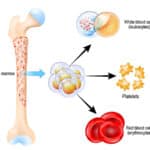

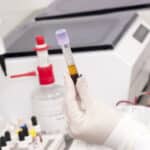



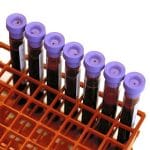

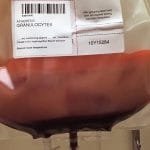
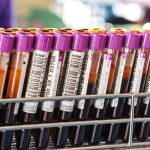
Hello Dr.Joe Chaffin
I would like To Thank You and Dr.Jeff Winters for this informative episode.
Thank You
You are very welcome!
-Joe
I don’t perform plasma or cytaphoresis, but this was very interesting and informative.
Thanks, Antonio! Dr. Winters is incredibly passionate about apheresis, and I really enjoy speaking with him. I’m glad you enjoyed it (even if you don’t do the procedures).
-Joe
I hope you actually do a whole podcast on RBC exchange in sickle cell anemia. I’m watching for that one! Thanks for all your work.
do have two questions:
I noticed doctors usually just give prbc if someone has Sickle Cell Trait, whereas they will do rbc exchange if someone has Sickle Cell Disease. Both come into ED with low HH. ‘Top Off’ is fine with trait?
Dr. Winters mentioned Leuko reduction to minimize HLA antibodies. Since all the units now are already leuko reduced, is that good enough? Do they have to be irradiated as well?
Patients with sickle trait do not usually need exchange transfusion, since their hemoglobin is not typically as low, nor their symptoms as severe as those with sickle cell disease. Certainly, it’s uncommon for them to need repeated transfusions.
Irradiation does nothing to prevent HLA antibody formation. Leukoreduction and transfusion avoidance are the ways to do that with blood transfusion.
-Joe
It’s always awesome that I learn something new everytime I hear your podcast. I listen to it during my workout at the gym. So double benefits while trying to get healthy. More power!